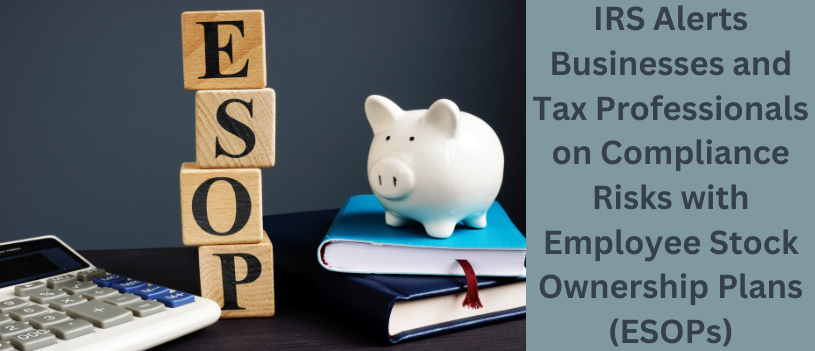The IRS is paying extra attention to Employee Stock Ownership Plans (ESOPs) as part of its efforts to make sure high-income taxpayers pay their fair share of tax. ESOPs are retirement plans where employees own stock in their employer’s company. However, these plans can be tricky, and the IRS wants businesses and tax professionals to be cautious.
IRS Commissioner Danny Werfel emphasized the importance of fair tax application and warned against questionable transactions related to ESOPs. The IRS is working to close gaps that allow some high-income individuals to hide income and avoid taxes.
ESOPs involve complex arrangements, and the IRS is taking steps to enforce compliance. They’ve identified issues like problems valuing employee stock, improper allocation of shares, and failure to follow tax law requirements for ESOP loans.
The IRS has also noticed potentially abusive setups involving ESOPs. For instance, businesses create S corporations owned by an ESOP to divert taxable income and provide loans to owners, claiming they’re not taxable income. The IRS disagrees with this interpretation, stating that these loans should be taxable income. Such arrangements can impact the ESOP’s tax law compliance.
To address these issues, the IRS will use various tools like education, outreach, and examinations over the next year. They encourage people to report individuals promoting improper tax schemes or tax return preparers filing incorrect returns. Reports can be submitted using Form 14242 to the IRS Lead Development Center in California, or individuals may contact the IRS Whistleblower Office for possible rewards.
For more details, visit the IRS’s information on Abusive Tax Schemes and Abusive Tax Return Preparers.
